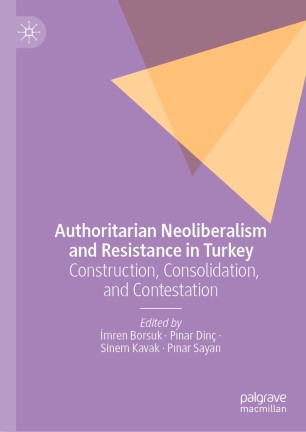Open-access chapter from the book:
Imren Borsuk, Consolidating and Contesting Authoritarian Neoliberalism in Turkey: Towards a Framework
During the early years of the ruling Adalet ve Kalkınma Partisi (Justice and Development Party, AKP), Turkey was seen as a burgeoning democratic power propped up by economic prosperity in line with the reforms for European Union (EU) accession and International Monetary Fund (IMF) conditionality. However, 20 years later, it is considered an emblematic case of democratic backsliding in line with rising poverty and inequalities that have been amplified as a result of sweeping neoliberal reforms and authoritarian consolidation in the country. The recent literature has identified these concomitant and complementary modes of authoritarian governance and neoliberal policies in Turkey as ‘authoritarian neoliberalism’. In this chapter, the authors discuss the dynamics of consolidation of authoritarian neoliberalism in Turkey as well as the acts of contention against it. Building mainly on the eight case studies presented in this volume, the authors put forward a framework that explains the consolidation of authoritarian neoliberalism in Turkey through the mechanisms of executive centralisation, autocratic legalism, cronyism, violence-fuelled rentier accumulation, criminalisation and stigmatisation, and contestations against authoritarian neoliberalism through strikes, protests, demonstrations, network building, litigation, everyday struggles, and armed acts of contention.


